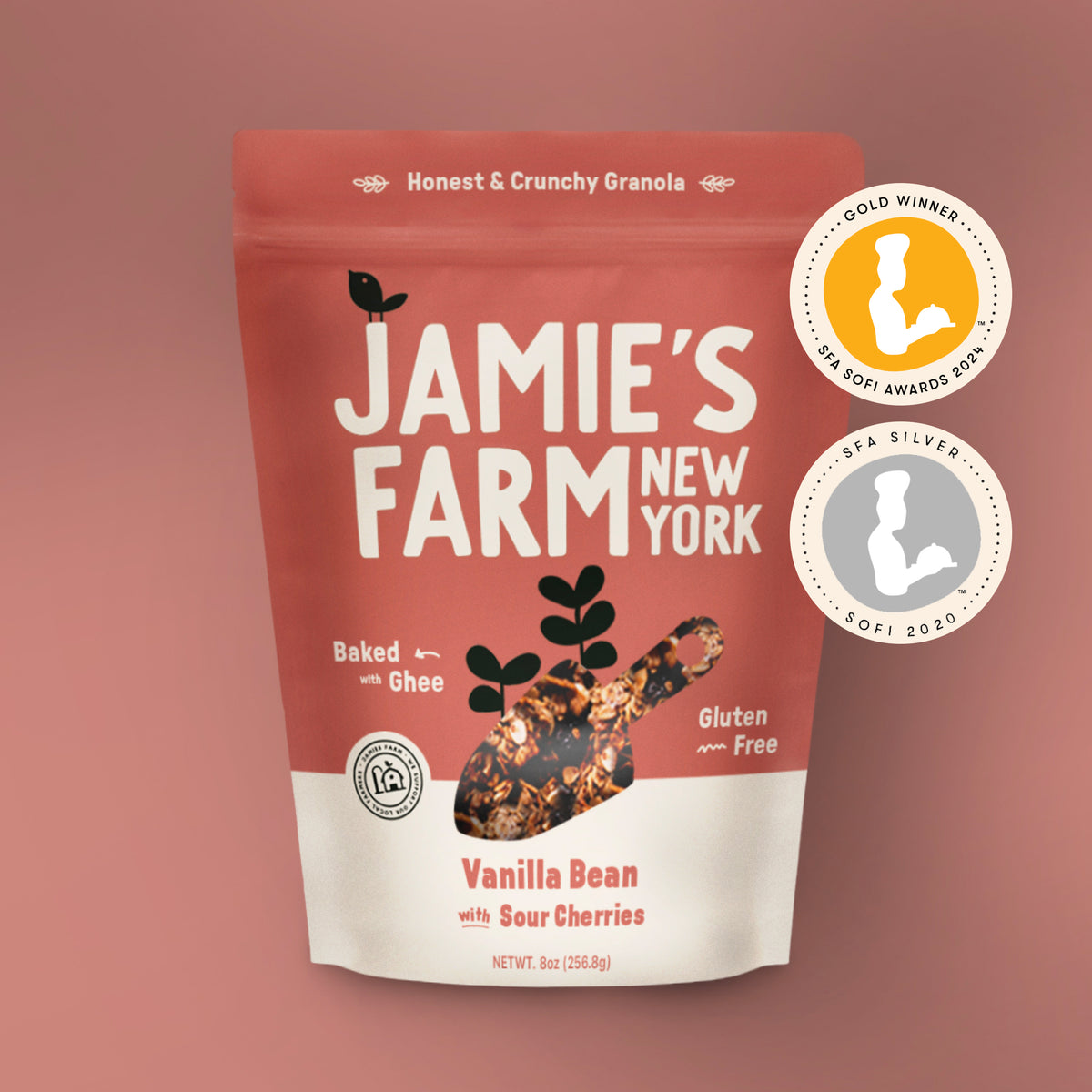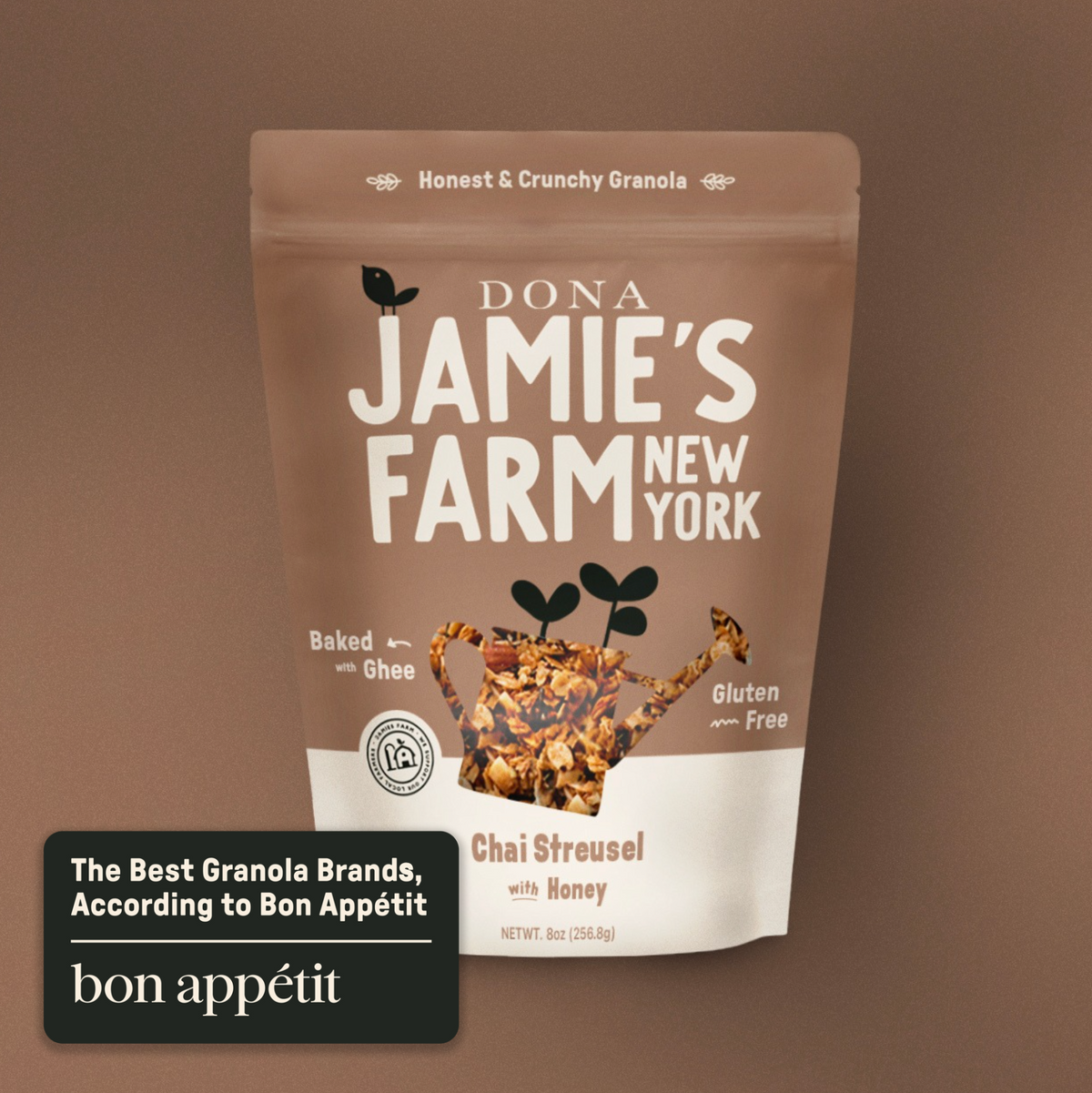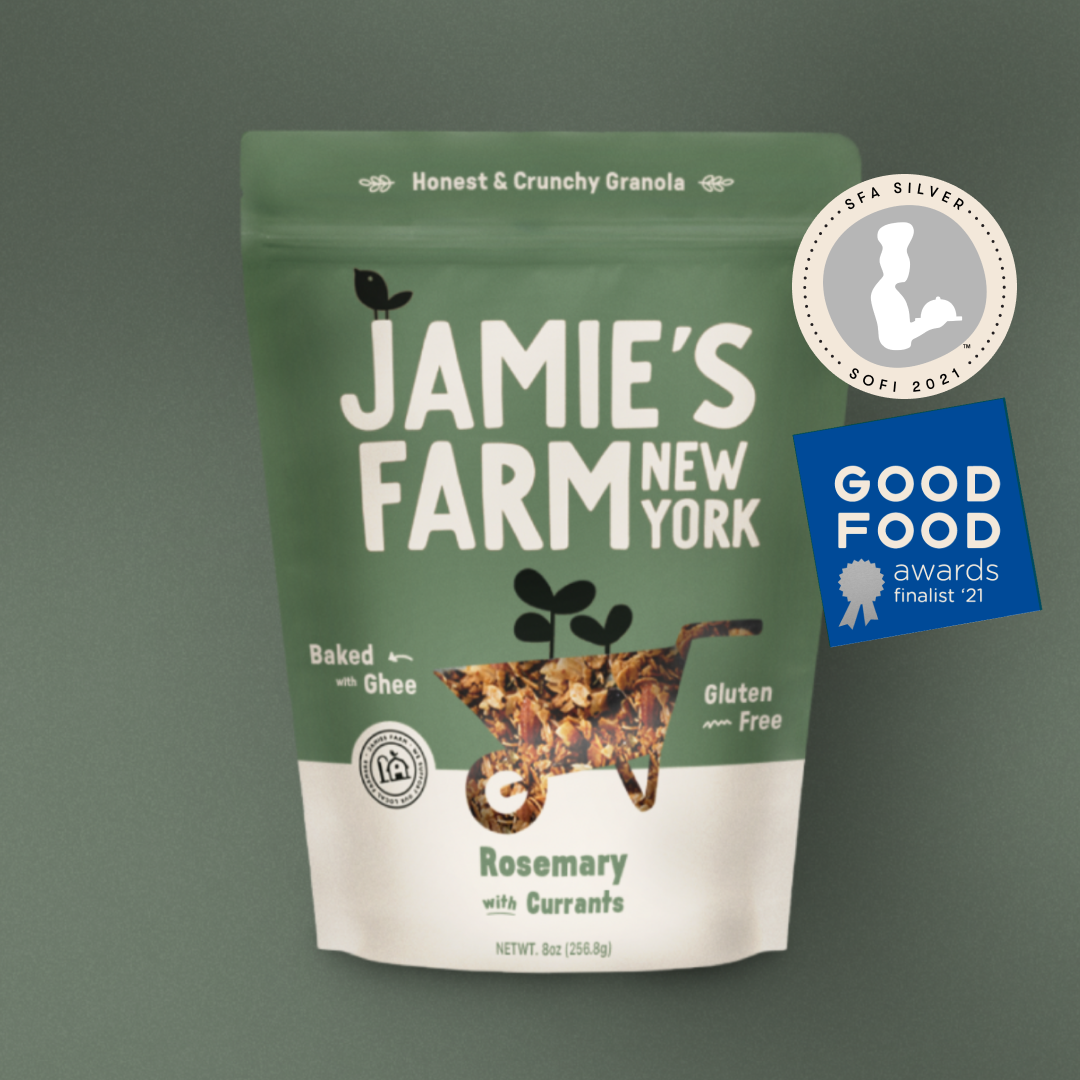At Jamie’s Farm, we’re passionate about creating healthy, delicious granola that nourishes your body and delights your taste buds. One key ingredient that sets our granola apart is ghee, a rich, golden fat that adds incredible flavor and health benefits. In this post, we’ll dive into what ghee is, its health benefits, and why we choose it over vegetable oils in our granola.
What Is Ghee?
Ghee is a type of clarified butter that has been a staple in Indian cooking for thousands of years. It is made by simmering butter over low heat, allowing the water to evaporate and straining out the milk solids. What remains is a golden, nutty-flavored fat that is rich, aromatic, and shelf-stable.
In recent years, ghee has gained popularity in the Western world for its nutritional profile, high smoke point, and unique flavor.
Health Benefits of Ghee
1. High Smoke Point
Ghee can be heated to high temperatures without burning, making it ideal for baking, roasting, and sautéing. Unlike vegetable oils that degrade and produce harmful compounds when overheated, ghee maintains its nutritional integrity.
2. Lactose-Free
Because the milk solids are removed during preparation, ghee is lactose-free. This makes it a perfect option for those with lactose intolerance while also extending its shelf life compared to regular butter.
3. Rich in Butyric Acid
Ghee contains butyric acid, a short-chain fatty acid that supports gut health by reducing inflammation and promoting the growth of beneficial bacteria. Butyric acid also has anti-inflammatory properties that contribute to overall digestive wellness.
4. Source of Omega Fatty Acids
Ghee provides essential omega-3 and omega-9 fatty acids, which play critical roles in brain function, hormone production, and heart health. Omega-3 fatty acids, in particular, have been linked to a lower risk of heart disease, improved mood, and better cognitive function.
5. Packed with Fat-Soluble Vitamins
Ghee is naturally rich in vitamins A, D, E, and K, which are essential for:
- Immune function
- Bone and heart health
- Healthy skin and vision
Vitamin K2, found in high concentrations in ghee, has been shown to protect against heart disease and osteoporosis.
Choosing the Best Ghee
When selecting ghee, quality matters. Look for:
-
Grass-fed ghee for higher nutrient content.
-
No additives, hormones, or antibiotics.
Ghee can be used as a substitute for butter or other cooking oils, or simply enjoyed spread on toast or drizzled over vegetables.
Why We Bake Our Granola with Ghee
Many granola brands rely on refined vegetable oils because they are cheap and shelf-stable. At Jamie’s Farm, we choose ghee because:
-
It’s a natural source of healthy fats and nutrients.
-
It delivers a rich, nutty, caramel-like flavor that complements oats, honey, and dried fruit.
-
It supports your overall health instead of relying on processed oils.
Using ghee in granola requires careful culinary techniques, as we melt the naturally solid fat and incorporate it thoughtfully into the base. This multi-step process ensures that each bite is delicious, wholesome, and nutrient-rich.
Why Many Granolas Use Vegetable Oils
Vegetable oils like canola, soybean, and palm oil are widely used because they are cheap, readily available, and shelf-stable. However:
-
They are highly processed and may contain trans fats and preservatives.
-
They can contribute to inflammation and other health concerns.
At Jamie’s Farm, we believe in no shortcuts — which is why we go the extra mile to bake with ghee.
The Jamie’s Farm Promise
When you choose Jamie’s Farm granola, you’re choosing quality, nutrition, and flavor. Our commitment to using ghee instead of processed oils means that every bag is crafted with your health and well-being in mind.
Sources
-
“Ghee: An Indian Clarified Butter: A Review.” Journal of Food Science and Technology, 2015.
-
Ghosh, Sumit et al. “Role of Butyrate and its Modulation of Epigenetic Mechanisms.” Frontiers in Physiology, 2019.
-
Agarwal, Kavita & Sharma, Ashutosh. “Comparative study of nutritional and antioxidant properties of ghee, butter and canola oil.” Journal of Food Science and Technology, 2014.
-
Ferreira-Lazarte, A., Campos, M.G., et al. “Antioxidant and Antimicrobial Properties of Bioactive Compounds from Quince.” Plant Foods Hum Nutr, 2015.
-
“Ghee.” FoodData Central, U.S. Department of Agriculture, 2019.






0 comments